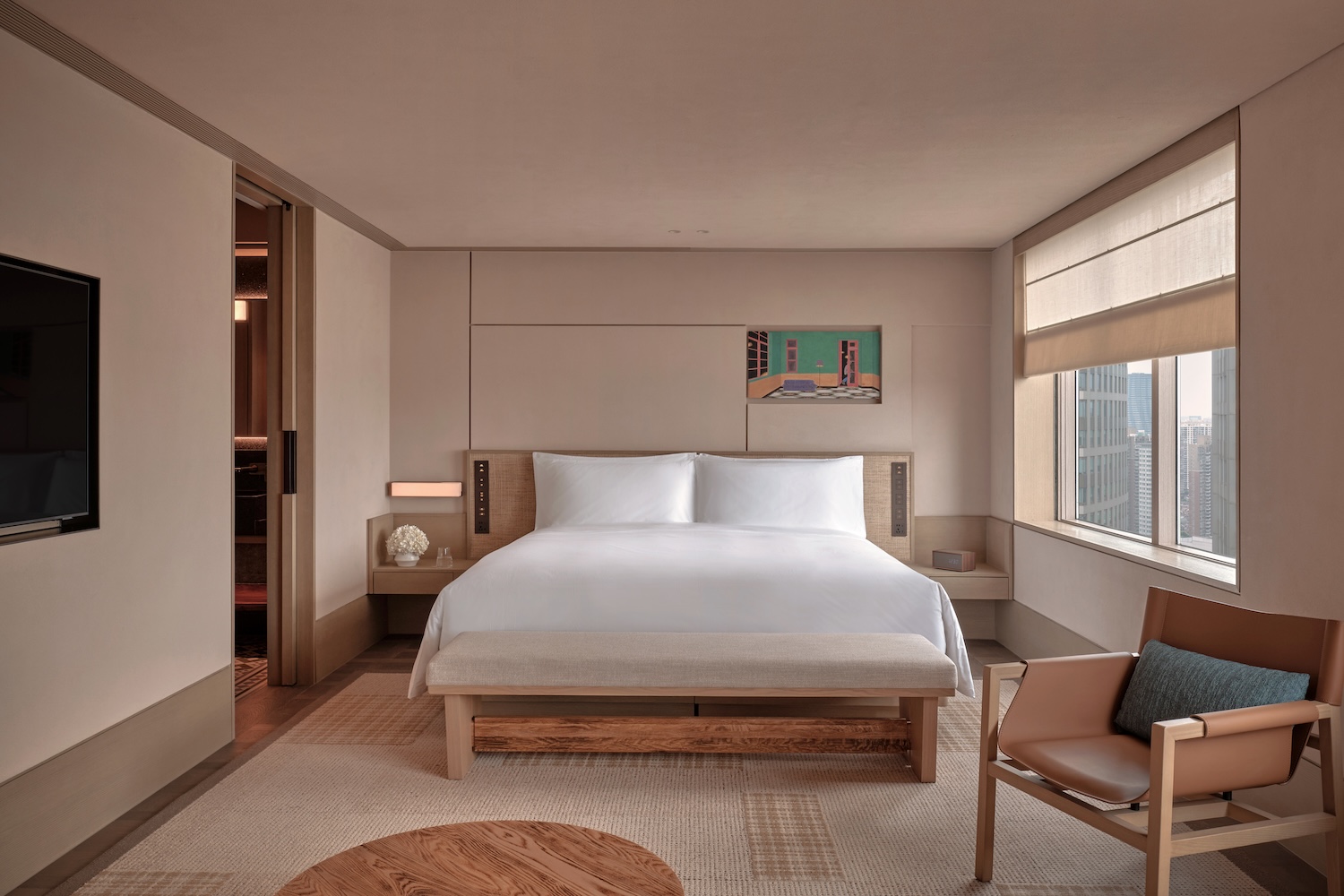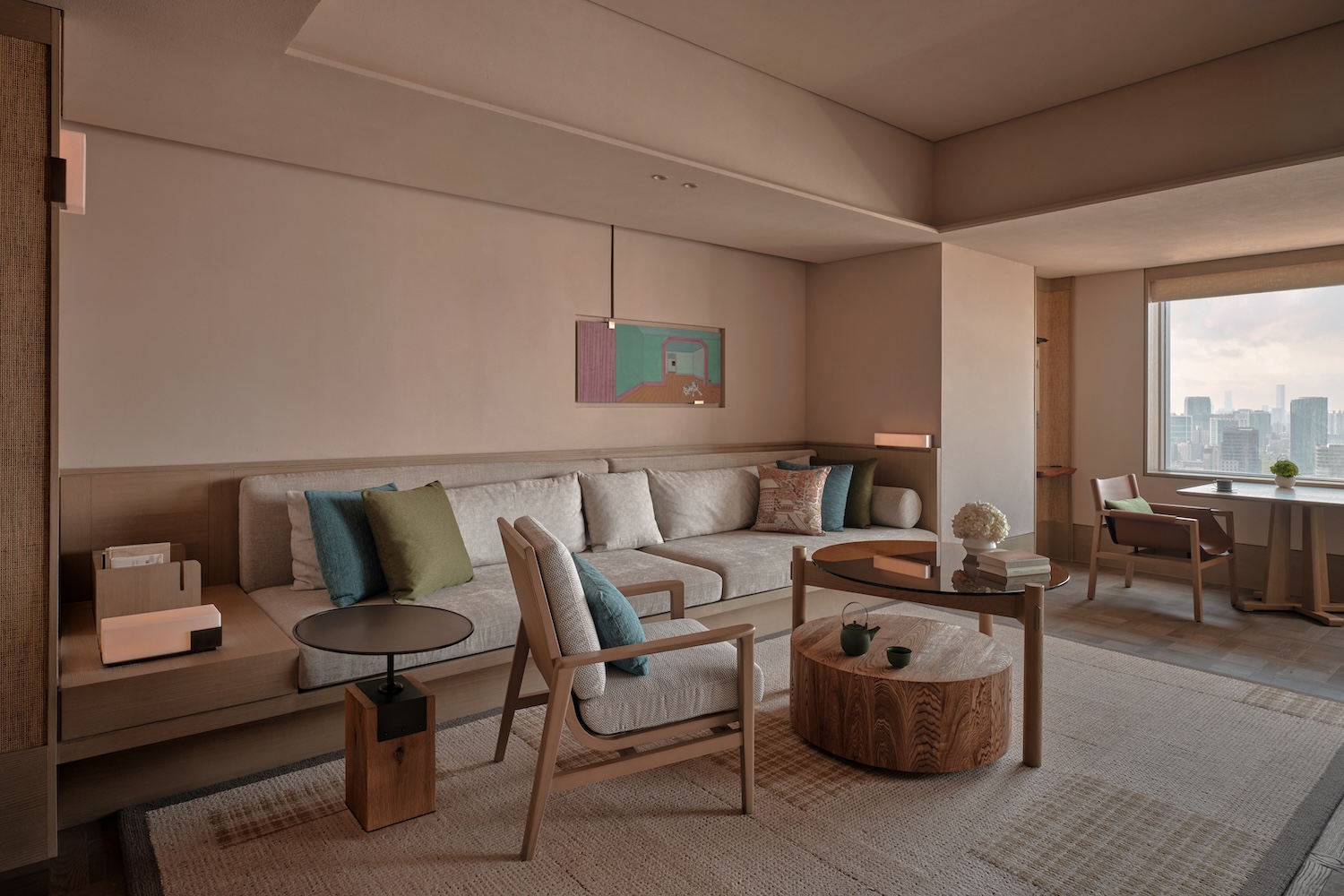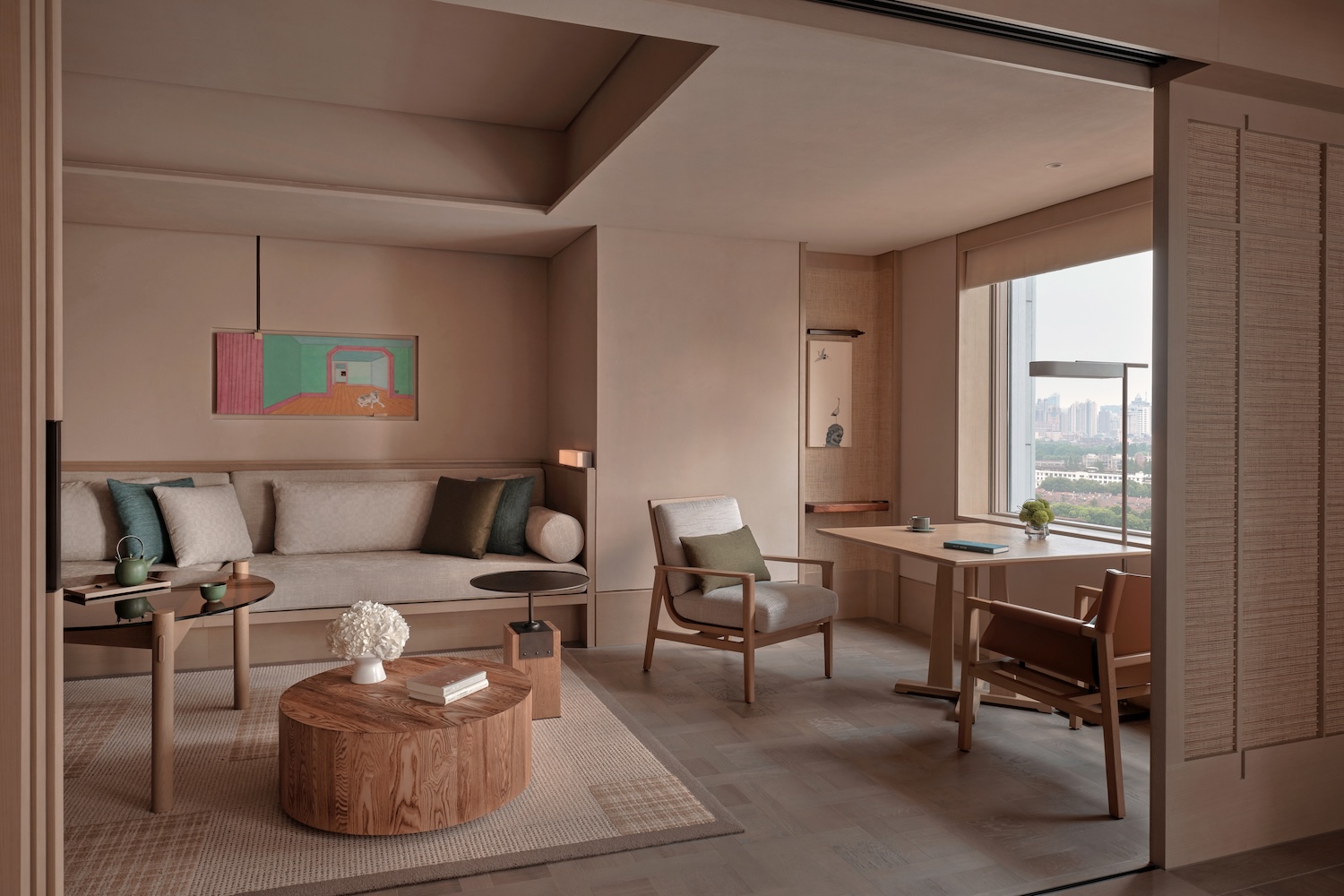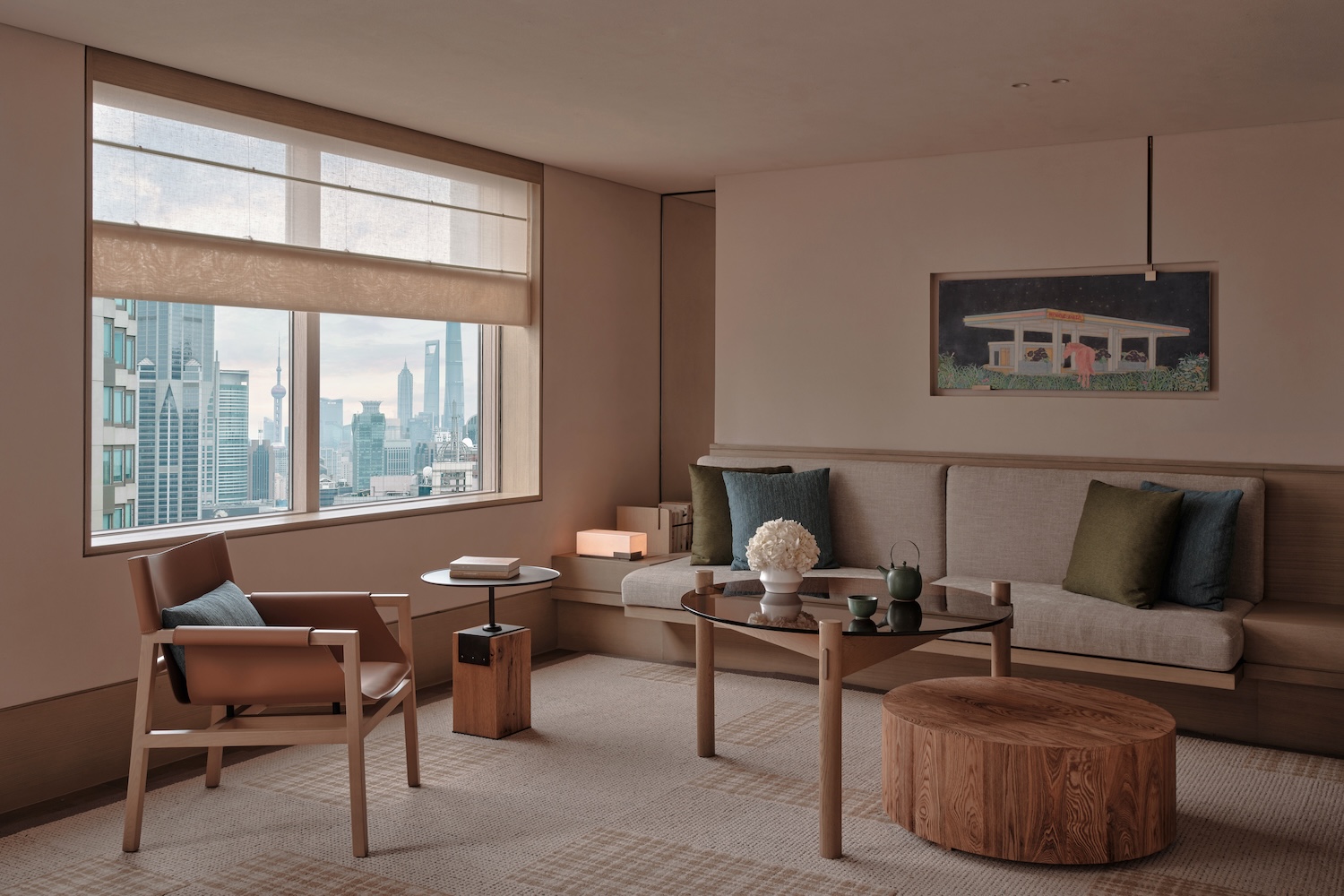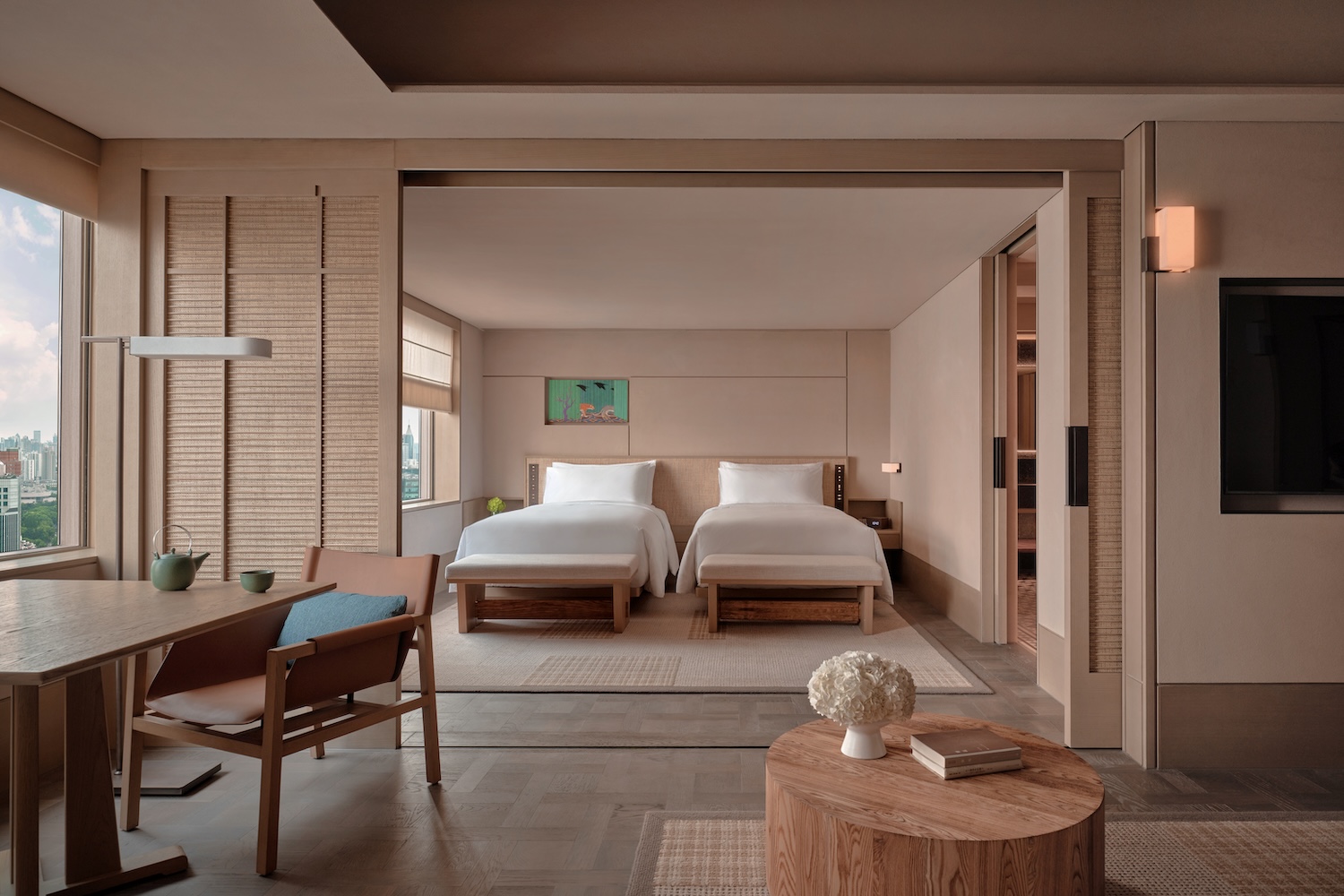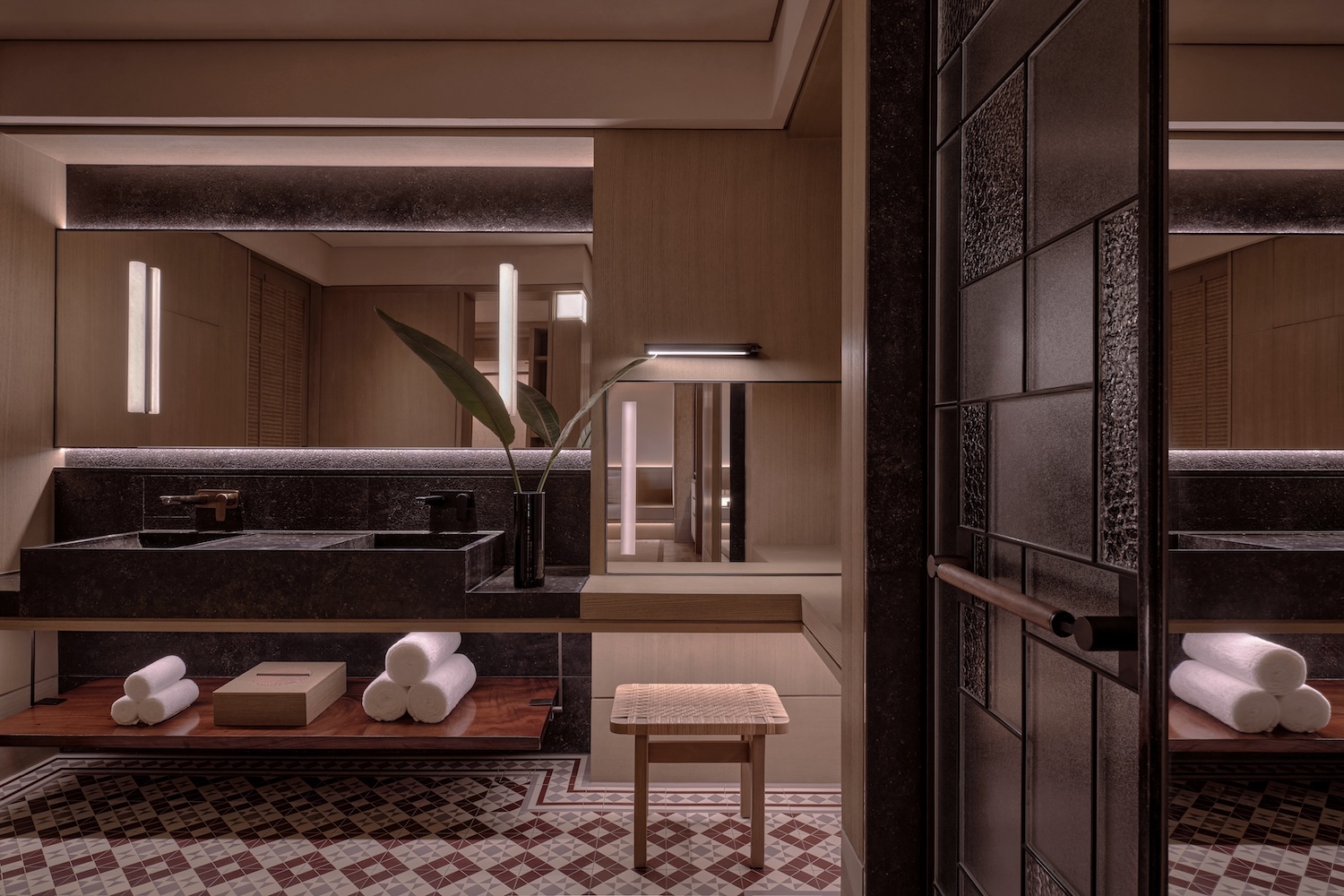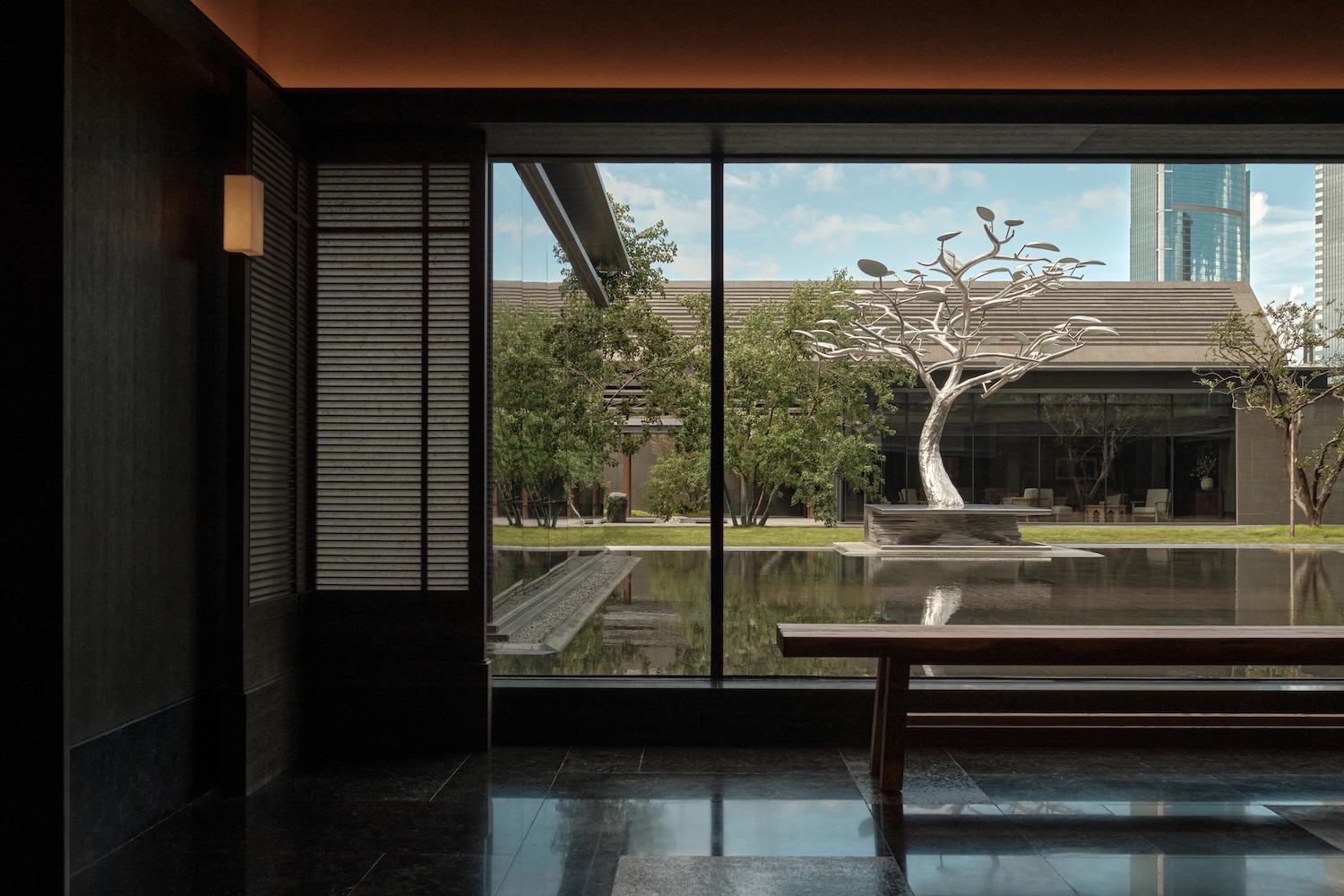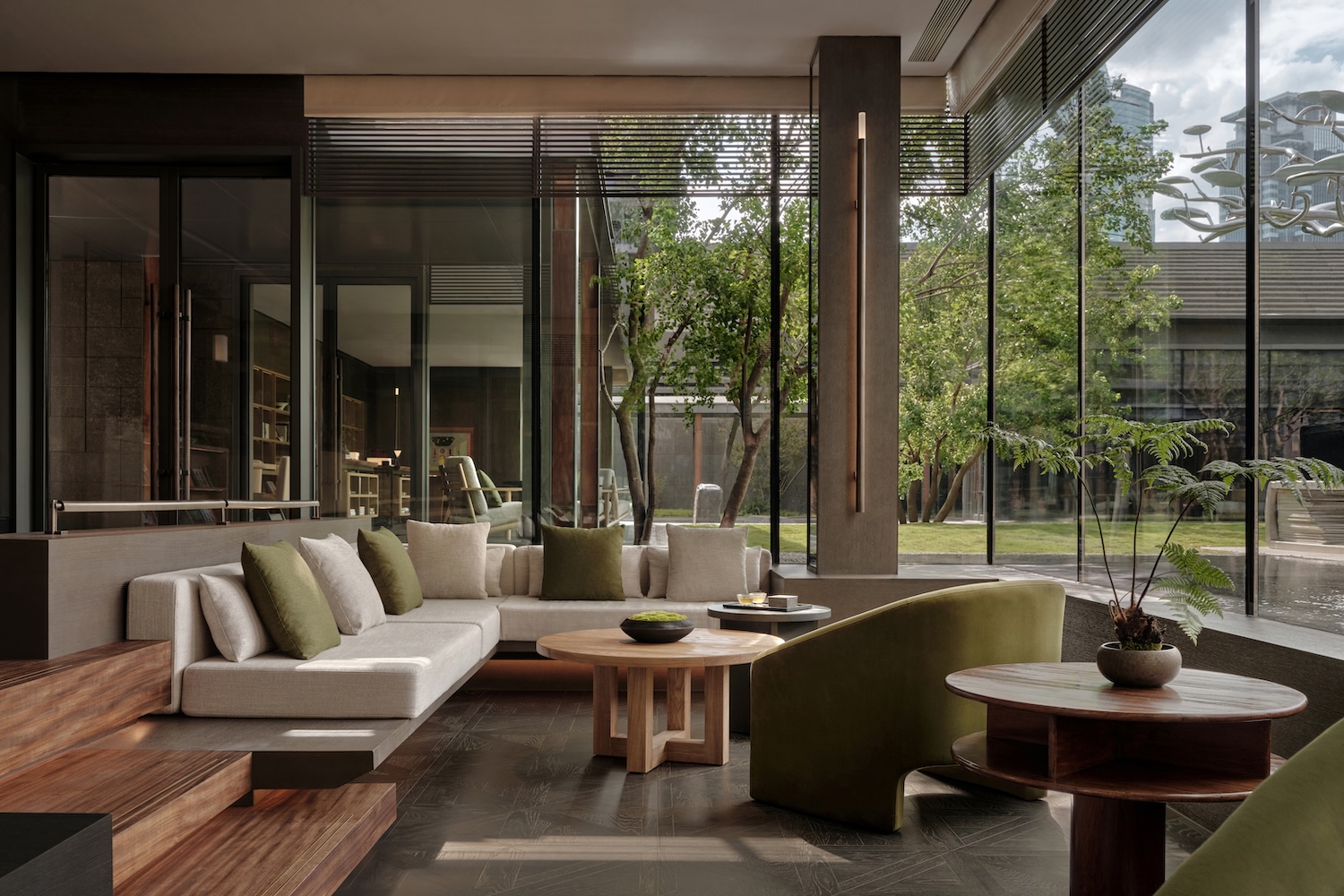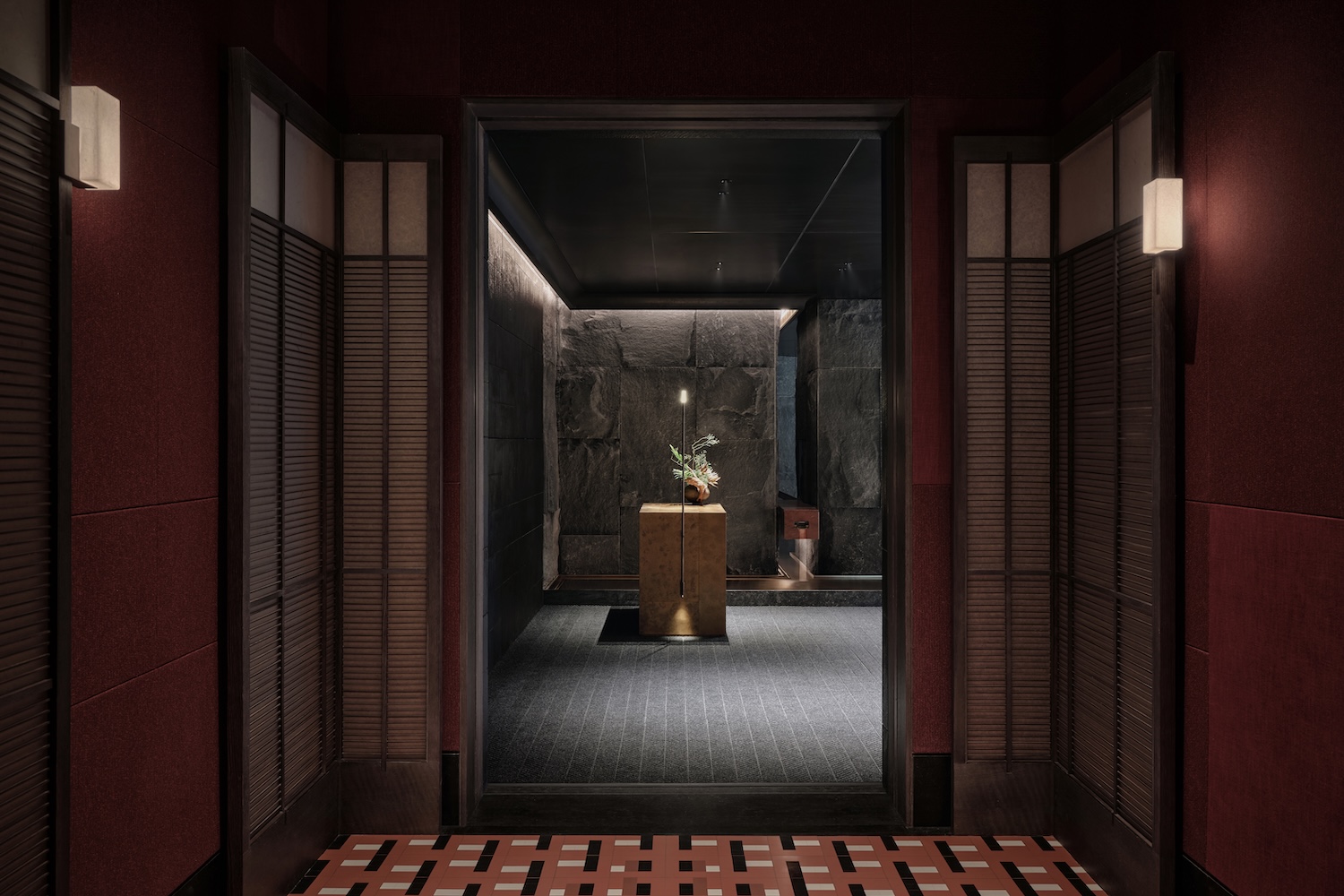Alila Shanghai is a luxury hotel located in Shanghai, China, designed by Ju Bin. In the heart of Shanghai’s bustling Jing’an district, a 17-foot-high sculptural tree rises from a landscaped oasis, its stainless steel branches adorned with ceramic leaves that catch the filtered light streaming through glass walls. This striking centerpiece at Alila Shanghai, crafted by local artist Oscar Wang, embodies the hotel’s sophisticated approach to material storytelling – a narrative that interior designer Ju Bin has woven throughout the property with remarkable sensitivity to both place and craft.
Bin’s design philosophy reveals itself most powerfully in the tactile landscape he has created. Roughly hewn stone walls dialogue with precision-cut timber marquetry, while rattan detailing speaks to traditional Chinese craftsmanship reimagined for contemporary luxury. These material choices echo the great modernist tradition of letting natural substances express their inherent character, yet they’re deployed here with a distinctly Asian sensibility that prioritizes harmony over contrast.
The entry sequence demonstrates masterful choreography of materials and mood. A canopy of trees frames the approach, leading to dry stone walls that guide visitors toward a barrel-vaulted ceiling lined with rattan-like textures. This progression from urban intensity to natural calm recalls the traditional Chinese garden’s principle of graduated revelation, where each threshold prepares the visitor for the next level of contemplation.
“Tranquil moments of retreat are perfectly combined with vibrant cultural experiences,” notes General Manager Yap Jtwen, articulating the design’s central tension. This duality manifests in the guest rooms, where textured glass reminiscent of vintage Shanghai window frames meets bold flooring inspired by historic mansion tiles. At 419 square feet, even entry-level accommodations provide generous lounge spaces that blur the boundaries between bedroom and living area, echoing the fluid spatial concepts that characterize the best contemporary hospitality design.
The property’s commitment to craft extends beyond decoration into culinary philosophy. The farm-to-table approach at restaurants like Garden Pavilion, built around a Japanese maple tree, suggests a holistic design vision where material authenticity encompasses everything from stone surfaces to seasonal produce. This integration recalls the Arts and Crafts movement’s insistence that design integrity must permeate every aspect of human experience.

